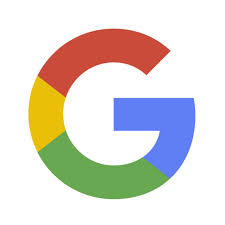Should Dentists Maintain SEO During The Covid-19 Lockdown?

The key question of search engine optimisation and where it lies as a business priority during Covid-19 closure
Over the last few weeks thousands of dentists UK wide have been evaluating their business expenses and looking to plot the best course to see them through the Covid-19 lockdown crisis. Many will also be assessing how best to re-launch after the lockdown restrictions are relaxed and indeed what shape their businesses will take.
The key assessments will have been around the practice infrastructure; for example how to maintain staff, pay rents etc. However, other crucial assessments will also have taken place, for example which aspects of marketing need to be maintained and which can reasonably be paused. Some of this we’ve covered in our last two blogs, but today we’ll take a closer look at search engine optimisation and why, if at all possible, it makes sound sense to maintain your web optimisation campaigns.
First we need to look at SEO and why it’s a “slow burn” process. Then we’ll discuss what can actually happen if you suddenly halt the optimisation work, particularly when your competitors are continuing.
The SEO process – recap
Search engine optimisation describes the process whereby work is carried out which improves the position of a website in the search results. As far as we’re concerned in the UK, this primarily relates to positions in Google as this is where the lion’s share of all search activity is focused. So we typically refer to Google optimisation for dentists in this context.
SEO can be split into two main parts; off-site and on-site optimisation. The former is where key elements of the website content are regularly adjusted to help improve search results. Techniques such as blogging are also used to assist this. The off-site optimisation is rather different in that this involves work such as acquiring links from third-party sites, building citations, review management and more. All of these elements combined are evaluated by Google’s algorithms which in turn determine which websites are deemed most useful for answering user queries and hence worthy of appearing at the top of the search results.
This type of work has to be done diligently and absolutely must be in accordance with Google’s publishing guidelines – step outside of these any Google will demote your website faster than you can blink. Too many dentists have suffered at the hands of poor SEO over the years and you’ll find several discussions about this elsewhere in our blog. Suffice to say that it has to be done diligently and ethically; so no short cuts.
The other key aspect of SEO is the need to stay agile and adapt quickly to Google changes. So when Google adds new ranking factors into its algorithms, we have to try to evaluate what is happening and adapt accordingly. Without this continued vigilance, a website can soon become very stale from an SEO perspective and ranking drops soon follow.
If all of this work is done rigorously, a website builds up “authority” and becomes the favoured source for Google when searchers ask questions. It takes time to build this authority but unfortunately it can also fall away very quickly too.
So what happens when an SEO campaign is halted?
There are a two main aspects to consider when a ceasing a website optimisation campaign. The first involves your competitors and what they are doing. If everyone ceased, then you might expect some form of pause across the whole of Google’s rankings – but this isn’t the case as we’ll see in a moment. What we are also tending to see is that web savvy dentists understand that it is incredibly important to maintain and build on their search rankings and so they are keeping going with their campaigns. Some are even ramping up to steal a bigger lead.
The other element to consider is the effect of Google algorithm updates which are still coming regularly irrespective of the crisis. If we lose the ability to respond and reposition a website quickly in line with those updates, then rankings drops can happen quite quickly.
Recovering from a ranking drop after a campaign is paused
You may consider that a campaign could be paused for 3 or 4 months and any lost ground recovered quickly. Unfortunately this is typically not the case. As we’ve seen above, search engine optimisation is a sustained push whereby you progressively catch up your competitors and then overtake them. The key then is to stay ahead. But let’s not forget that your competitors are also likely to be continuing their campaigns and if they do, they will potentially overtake you and then consolidate their own positions. The result is that you have to work even harder when you eventually get moving again. The cost is significant in that you will likely need to pay your SEO company more for a broader campaign. The business you lose out on during the catch-up is also likely to be very significant indeed.
Summary
It’s absolutely clear that the basic dental practice infrastructure will always come first in a crisis such as this and if marketing has to be put to one side, then so be it. However, to inform such assessments, it’s also critical to understand the short, mid and longer term effects of ceasing marketing functions, in particular fundamental aspects like SEO.
If you are considering what to do about your own optimisation programmes and need advice, please don’t hesitate to call the digital marketing team here at Dental Media on 01332 672548 for transparent advice.
